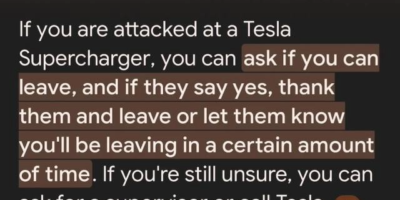In October of last year, the United States House of Commons introduced bill H.R. 3261 – better known as the Stop Online Piracy Act, or SOPA. Because this bill has been talked about so much, I am not going into all the little details about it. Rather, I want to focus on what it is trying to address.
A lot of the discussions that people come across about SOPA tend to be very negative, focusing on the issues of people abusing the system, costing lots of money, the threat of silencing free speech – essentially killing the internet. But while these arguments may have some merit, they all fail to address the issues that SOPA – in its original form – was trying to address. SOPA is trying to help create and improve upon the incentives there are for entrepreneurs, writers, artists, and others, as well as to protect those in the US and make sure that people are not profiting from someone else’s work.
The biggest thing that SOPA is trying to address, and that many people who are against SOPA are failing to offer a solution to, is the right of developers and entrepreneurs to get credit, and subsequently get paid, for the products that they create. Under SOPA, copyright owners will have the ability to flag companies that use material without permission (and subsequently profit from it).
One immediate benefit of SOPA would be the profit incentive, by trying to develop your own products, rather than base a website on the business plan of sharing everyone else’s products. Some examples of this are companies who stream online TV shows and movies, sites where you can download and upload those shows, as well as a large array of computer software.
Innovation and entrepreneurship are two of the best ways to move society forward and to create jobs and better standards of living for people. However, there is no motivation or incentive for either innovation or entrepreneurship if there is no profit in it. This is why certain pharmaceutical drugs will never make it to human trials – the cost is not worth it when there is such a high risk of failure and low payout. SOPA is trying to find a way to address this problem. By having copyrighted material on the internet regulated, it gives people the incentive to be entrepreneurial, by letting them control the rights of their material, and removing, or at the very least reducing, the risk of that material being stolen and making profit for someone else as soon as it is created.
As well as the claims of copyrighted videos, SOPA will also help those in the music and book publishing industry, or those trying to get into those industries. There is already so much risk to go into them, because there is such a likelihood that you will not be very successful. However, if potential book and music writers know that they can get paid well for producing original content, they will try to get their work out there more often, which will build the book and music community.
There will be much less risk of having your music downloaded or taken off your website and put on YouTube or any other website for someone else to make money (or at the very least, make less money for you). As well, it is very easy for pdf or ebooks to get out onto the internet, and with pdf and ebook readers, it is easy for anyone to get a hold of a copy and read it at their own convenience. SOPA’s goals are to remove this loss, improving the incentive to write books and to try to make a profit when the public can access it.
Another reason that this is beneficial is that every website will have regulations that they will be responsible for. One of the goals of these regulations is that they will reduce the amount of fraud or spam sites that exist, either trying to sell you drugs or any other product that may not have gone through accepted paths to get approved, and as such may cause more harm to the general public than good. One of the aims of the United States Government is to protect its citizens. This can best be done by having a better way of blocking sites that can harm users.
One last goal that the Stop Online Piracy Act is trying to accomplish is to stop making it a business option for people to steal material from innovators and make a profit from them. This can be done by charging people to view this material, or by offering advertising for companies that want to target users viewing this material. SOPA is hoping to make it so that if a company is flagged for using another company’s materials, then not only will the first company’s site be shut down, but the company advertising on that site will be aware and will be able to stop funding those kinds of projects.
One counter argument to SOPA is that a company could easily flag another company, which would be common if they are in competition. However, with SOPA, there would also be a lot more protection to those companies, and false claims made can lead to a company being sued. With a high enough penalty on companies who make false claims, there is a much less likelihood of it happening.
The goals of SOPA have been to improve on the incentives of entrepreneurship, protect United States citizens, and make sure those who did not create materials are not making money from it. While there may be some flaws in the current writing of SOPA, it is still trying to accomplish the goals for the above, which can help a lot of people.




Leave a Reply